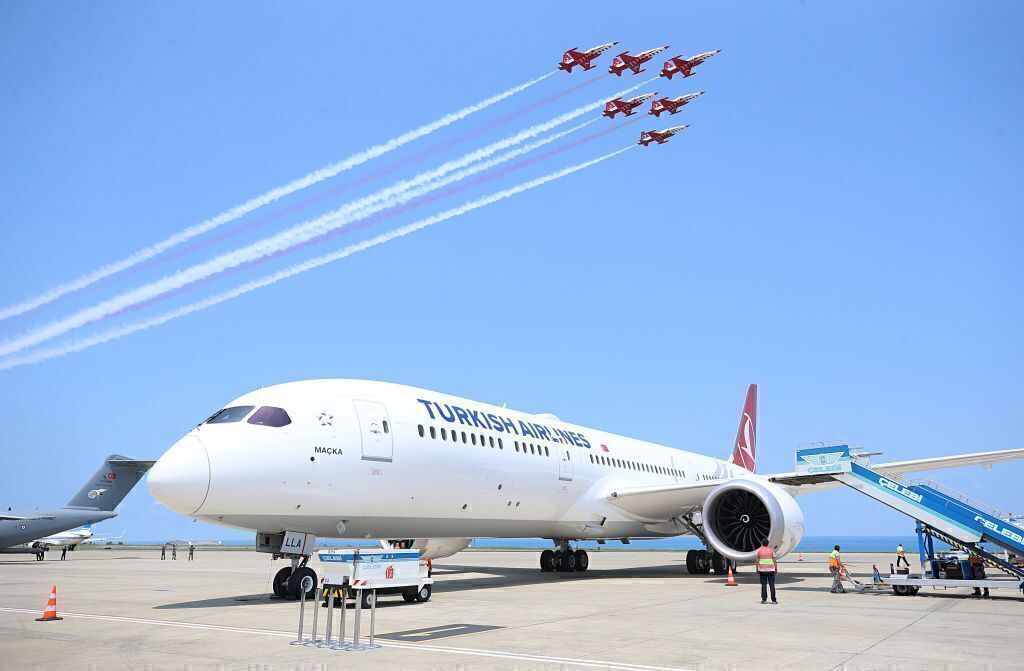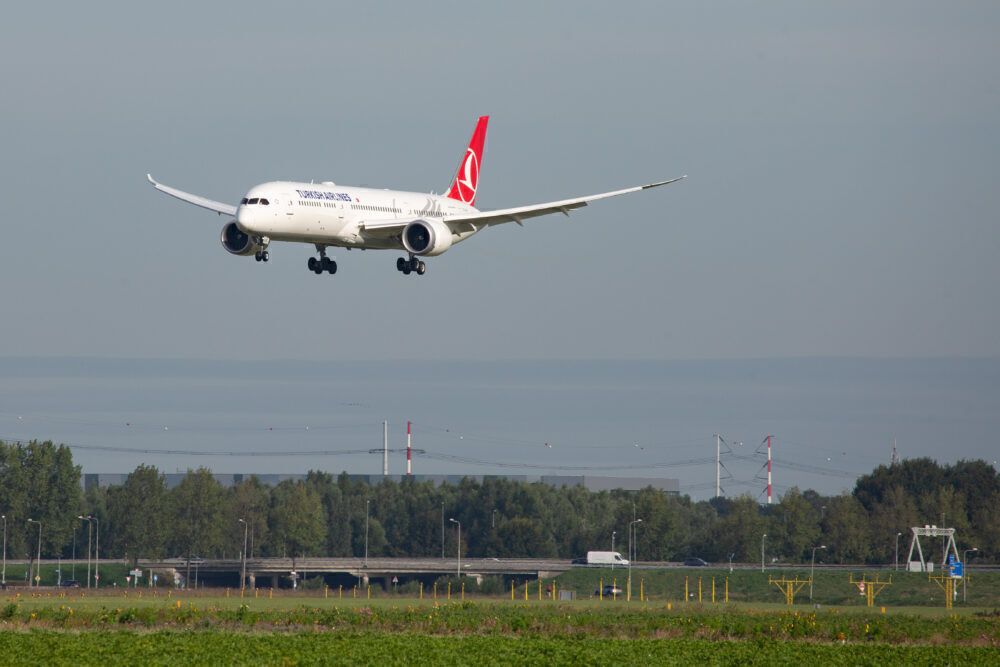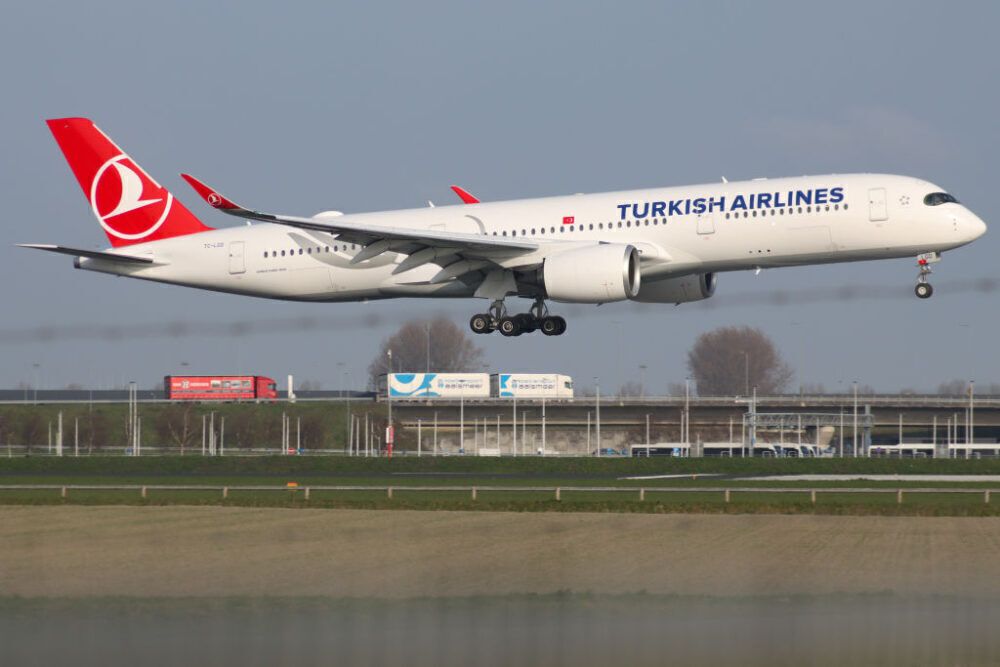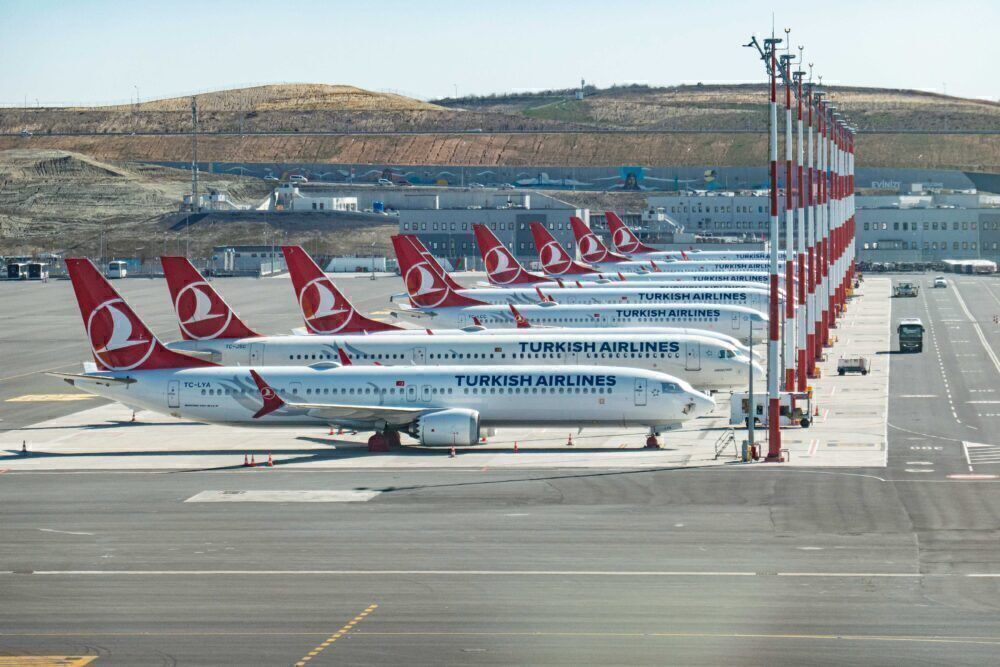Istanbul-based Turkish Airlines is known for serving more countries than any other airline in the world. With such a widespread network, the carrier also has a correspondingly diverse fleet, and operates single and twin-aisle jetliners from both Airbus and Boeing. Among these are several next-generation models, which have helped bring the fleet's average age down. According to its Chairman of the Board, this figure is presently as low as 7.5 years old.
A comparatively young fleet
The aviation industry presently has a lot on its plate. While attempting to weather the storm of the ongoing coronavirus pandemic, companies also have an eye on longer-term sustainability goals. Indeed, many airlines and manufacturers have set their sights on having net-zero carbon emissions within three decades, by the year 2050.
Sustainability was one of the topics discussed today by Turkish Airlines' Chairman of the Board and Executive Committee Mehmet İlker Aycı at the FTE APEX Virtual Expo. One of the ways that the carrier has been able to reduce its environmental impact is through implementing modern aircraft into its fleet. This has also brought its average age down. Aycı states:
"Today, with the new-generation aircraft, we [have] one of the youngest fleets in the world. It's only seven-and-a-half years old, the average age of our fleet. That is allowing us [to have] low carbon emissions, and more efficiency as well. We saved thousands of tons of carbon emissions last year."
Stay informed: Sign up for our daily and weekly aviation news digests.
Ahead of its European competitors
Next-generation aircraft have allowed Turkish Airlines to become "20% more efficient" in its fuel consumption. The cornerstones to this drive have been the Airbus A321neo, the Airbus A350, the Boeing 737 MAX, and the Boeing 787. Even the airline's older aircraft are relatively young, causing it to outrank the following European flag carriers in average age.
- Air France - 14.5 years old.
- Alitalia - 15 years old.
- British Airways - 12.9 years old.
- Iberia - 9.1 years old.
- Lufthansa - 11.5 years old.
(Fleet data from ch-aviation.com)
A mixed short-haul contingent
To gain an understanding of how Turkish Airlines has achieved such relative youth in its fleet, let's take a closer look at the aircraft of which it consists. Using data from our friends at ch-aviation again, we can see that Turkish Airlines' short-haul operations use both the Airbus A320 and Boeing 737 families. Specifically, it flies the following models.
- A319-100 - Six aircraft, 10 years old on average.
- A320-200 - 13 aircraft, 13.4 years old on average.
- A321-200 - 66 aircraft, 8.8 years old on average.
- A321neo - 27 aircraft, 1.4 years old on average.
- 737-800 - 97 aircraft, 12 years old on average.
- 737-900ER - 15 aircraft, 8.1 years old on average.
- 737 MAX 8 - 11 aircraft, 2.5 years old on average.
- 737 MAX 9 - One aircraft, 2.2 years old.
Modern widebodies in the long-haul fleet
As for its long-haul fleet, Turkish Airlines once again flies both Airbus and Boeing designs. These are a mixture of older and newer models, but, overall, this section of the fleet also has a very youthful feel to it. The carrier's widebody models are as follows.
- A330-200 - 14 aircraft, 13.3 years old on average.
- A330-300 - 40 aircraft, 7.4 years old on average.
- A350-900 - Five aircraft, 0.7 years old on average.
- 777-300ER - 33 aircraft, 7.6 years old on average.
- 787-9 - 14 aircraft, 1.5 years old on average.
Even the airline's cargo division fits the trend of being relatively young, despite this area often being the domain of older aircraft. Overall, Turkish Airlines' modern fleet will be a cornerstone of its sustainability efforts moving forward. As more aircraft arrive, the average age may even drop further! As we love to say here on Simple Flying, watch this space...
Did you know that Turkish Airlines had such a young fleet? Have you ever flown with the carrier? Let us know your thoughts and experiences in the comments!




